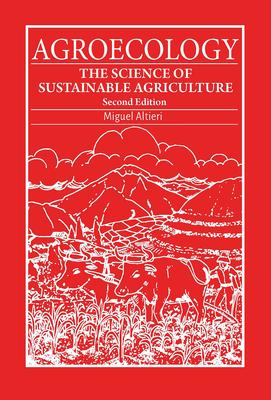Based on new research results and practical findings, this new, revised edition of a classic text re-emphasizes the importance of agroecology as the discipline that provides the basic ecological principles of how to study, design and manage agroecosystems. By separating myth from reality, Miguel Altieri extracts the key principles of sustainable agriculture and expounds on management systems that "really work." Providing case studies of sustainable rural development in developing countries, he goes beyond a mere description of practices to include data that reveal the socioeconomic and environmental impacts of alternative projects. Each chapter of Agroecology has been enriched and updated with the latest research results from around the world. New emphasis has been placed on such issues as the ecological economics of agriculture, policy changes needed for promoting sustainable agriculture, rural development in the Third World, the role of biodiversity in agriculture, and new research methodologies.

Based on new research results and practical findings, this new, revised edition of a classic text re-emphasizes the importance of agroecology as the discipline that provides the basic ecological principles of how to study, design and manage agroecosystems. By separating myth from reality, Miguel Altieri extracts the key principles of sustainable agriculture and expounds on management systems that "really work." Providing case studies of sustainable rural development in developing countries, he goes beyond a mere description of practices to include data that reveal the socioeconomic and environmental impacts of alternative projects. Each chapter of Agroecology has been enriched and updated with the latest research results from around the world. New emphasis has been placed on such issues as the ecological economics of agriculture, policy changes needed for promoting sustainable agriculture, rural development in the Third World, the role of biodiversity in agriculture, and new research methodologies.